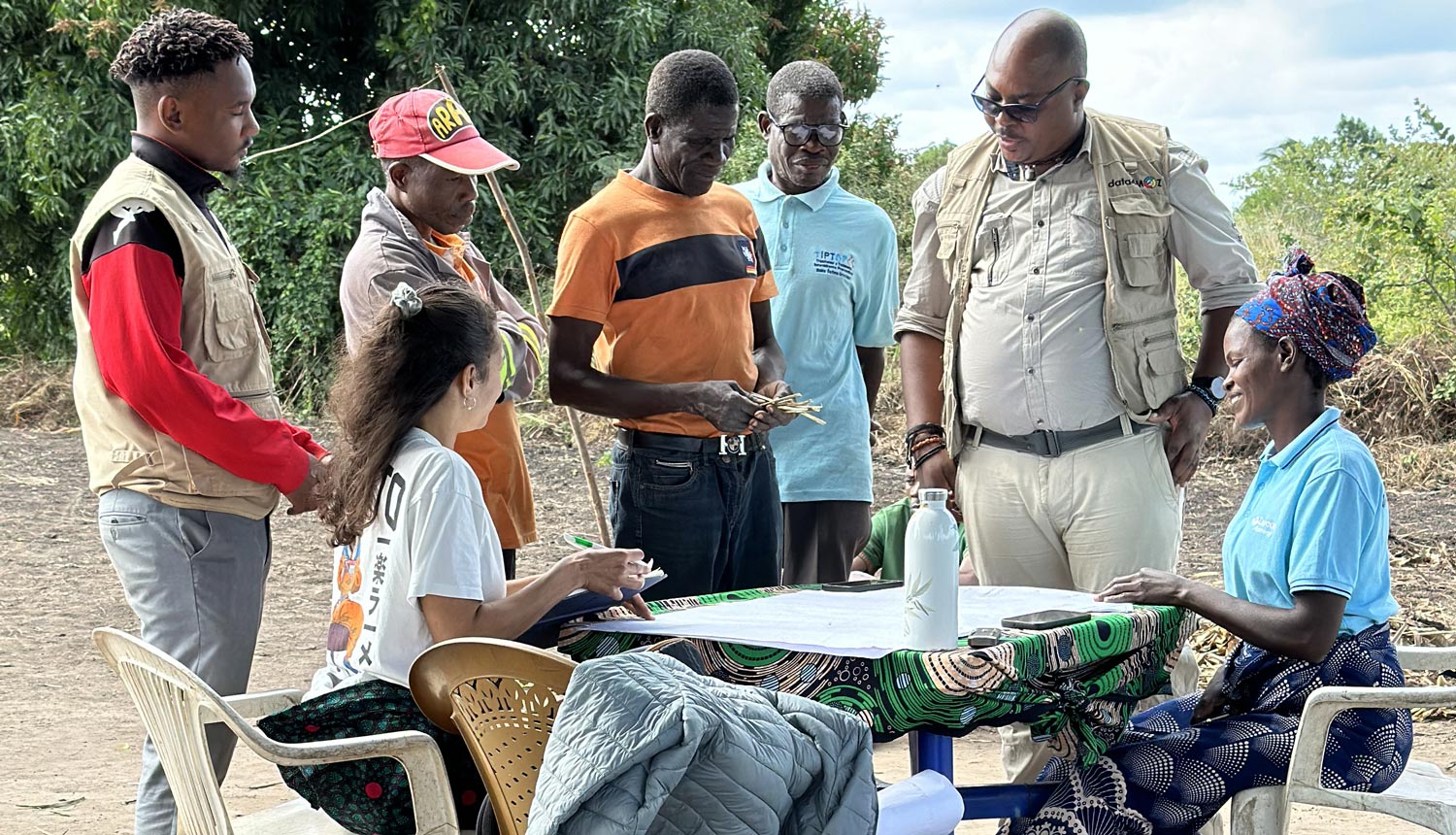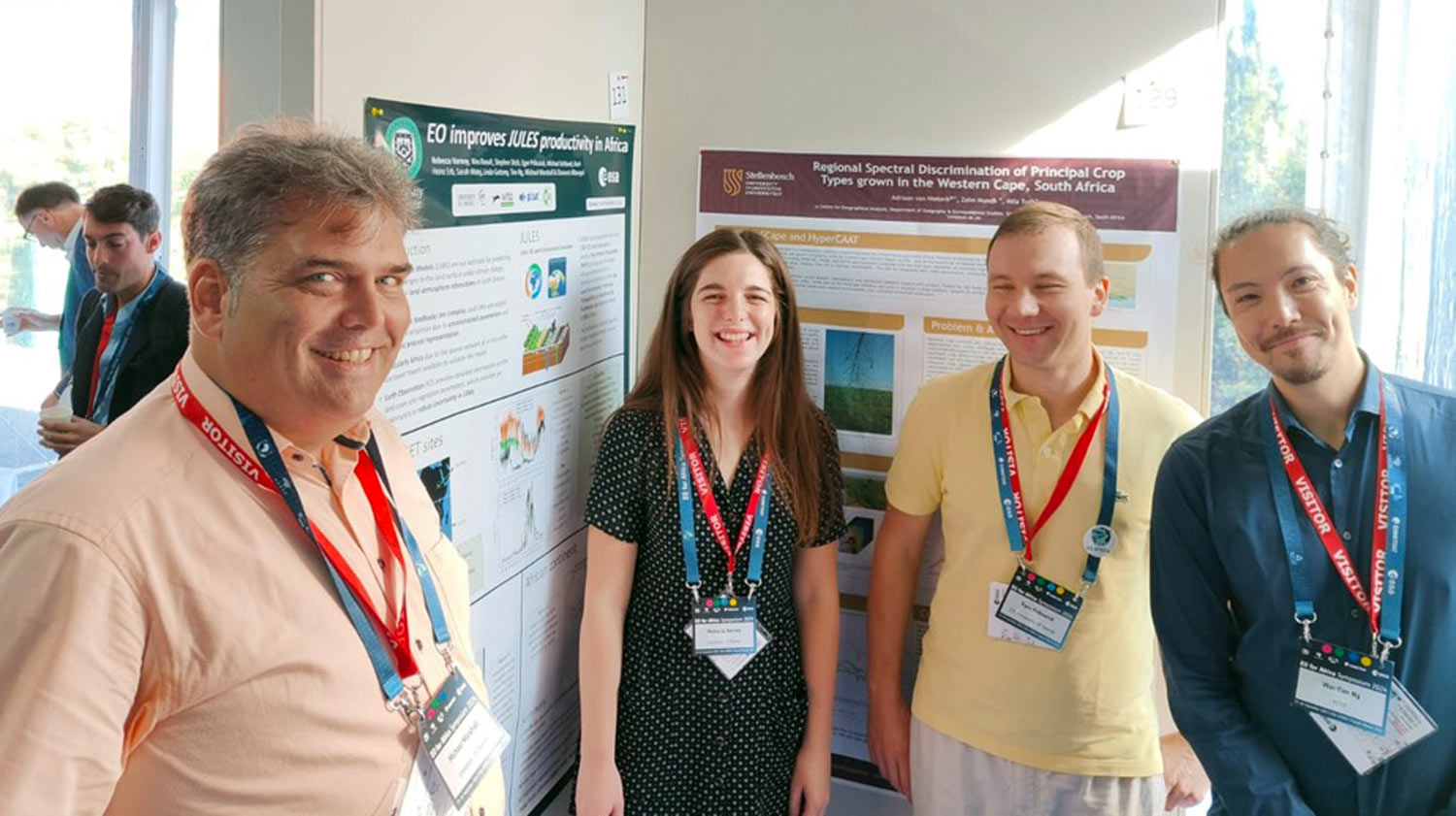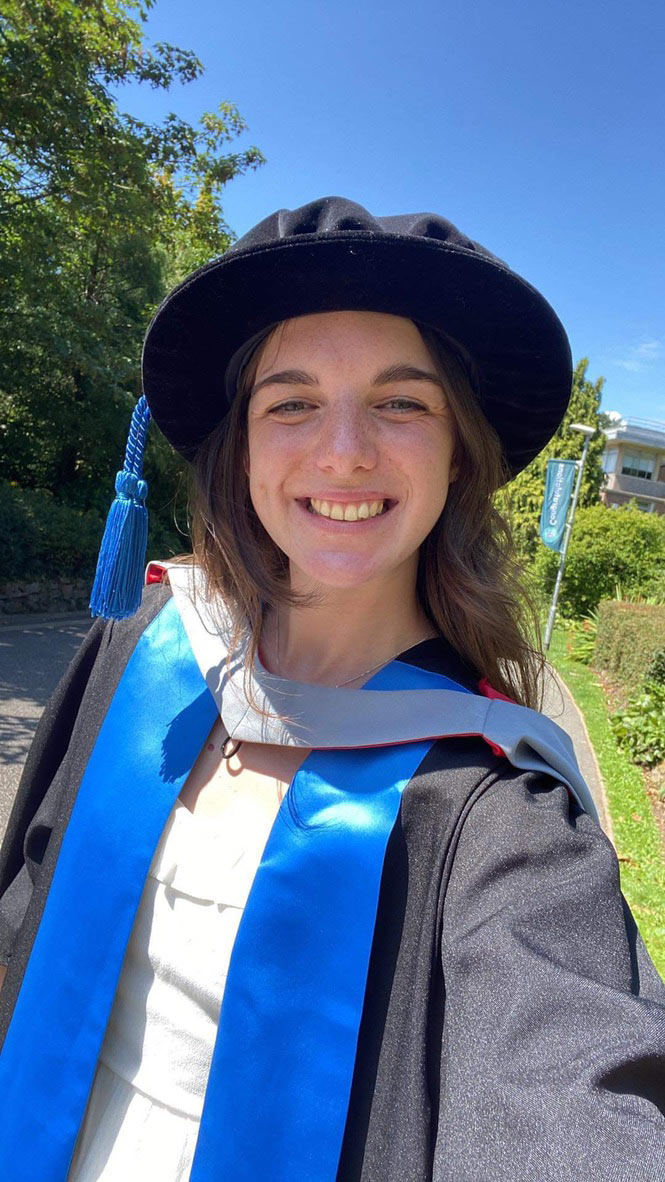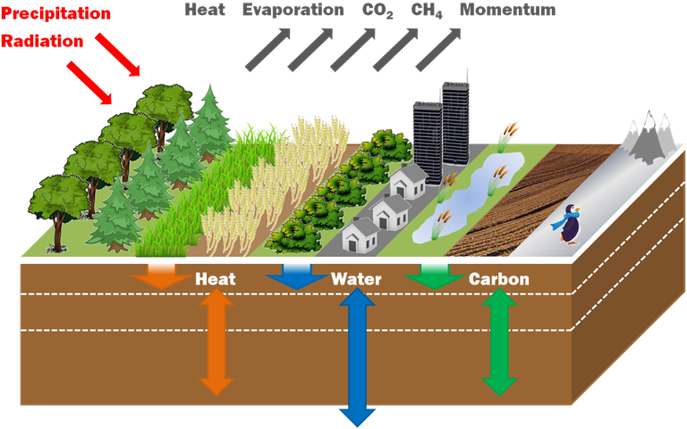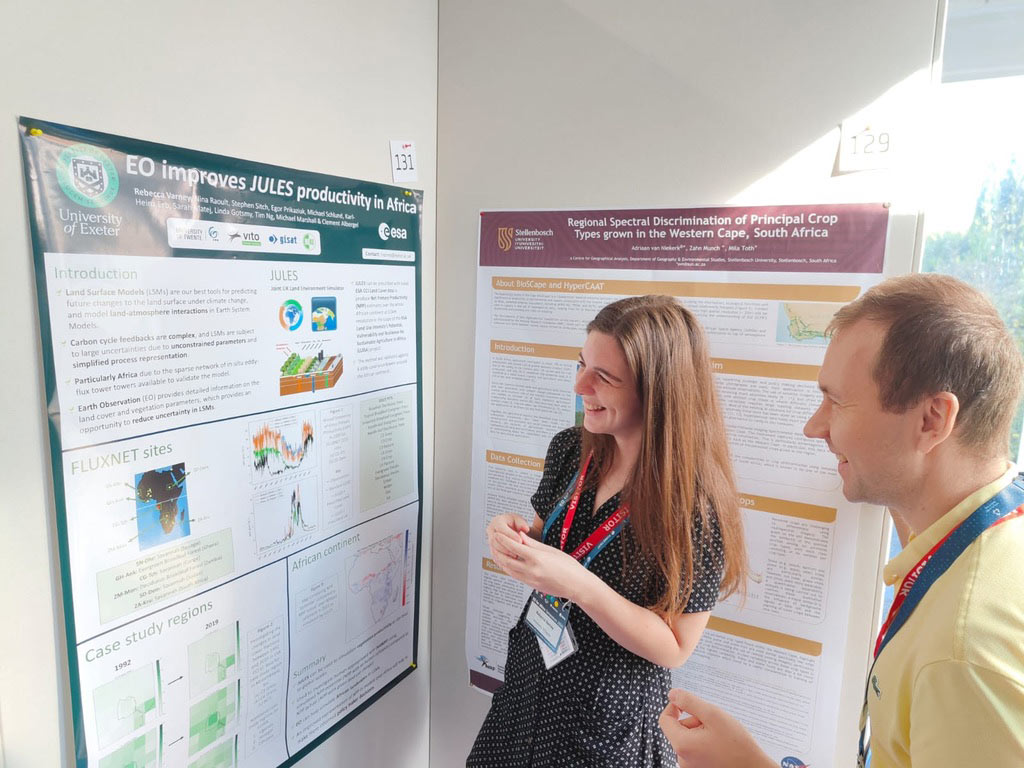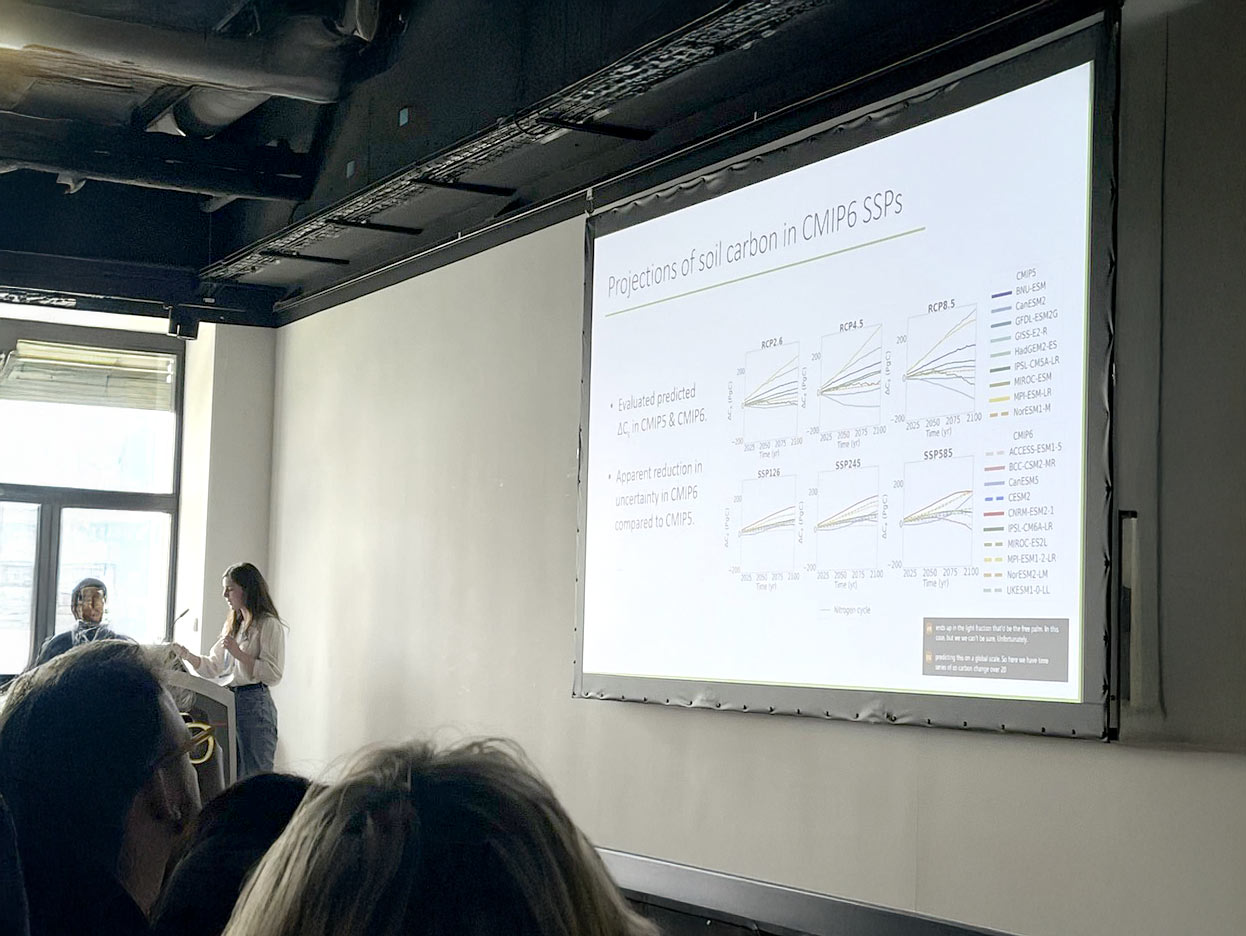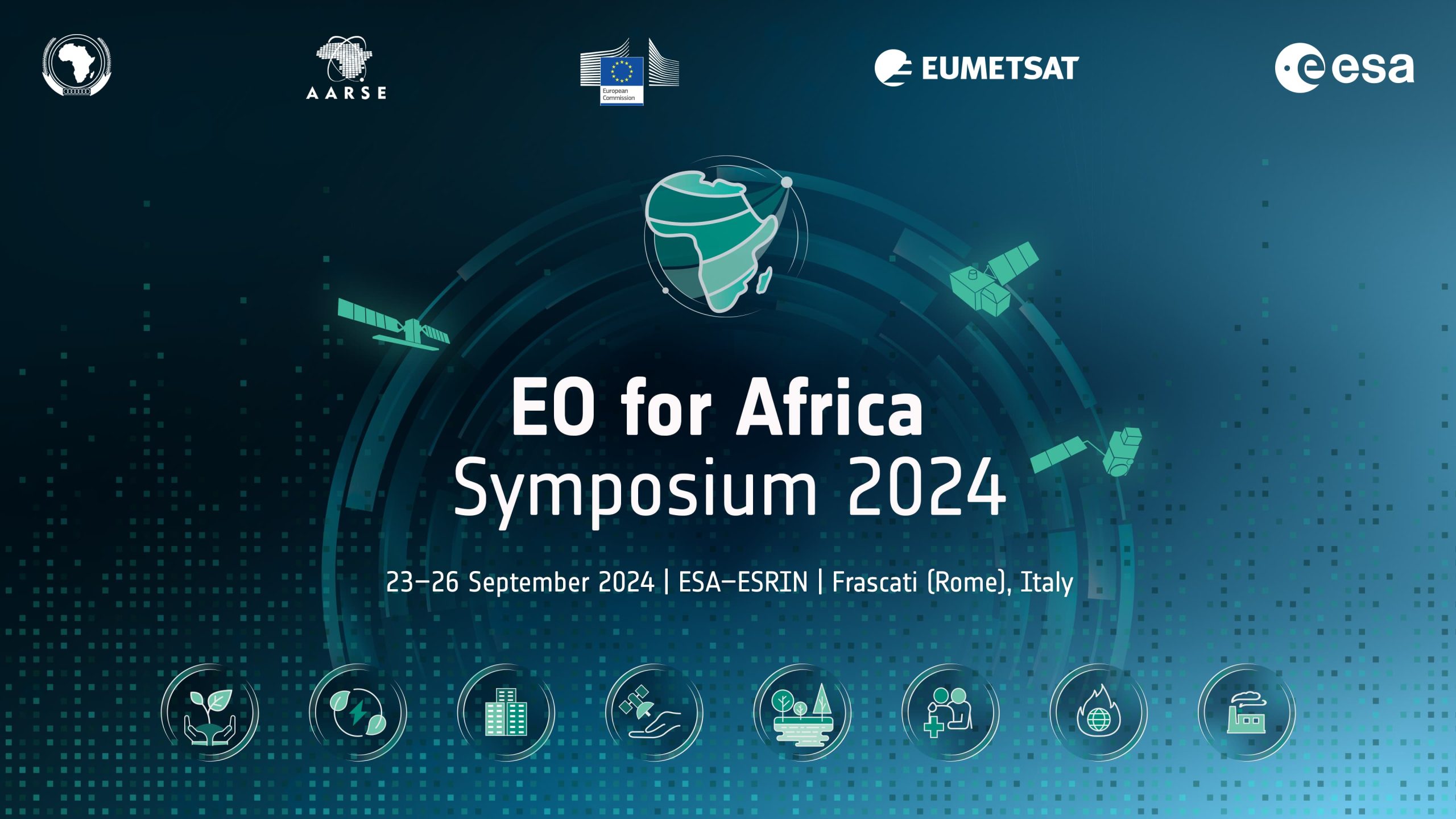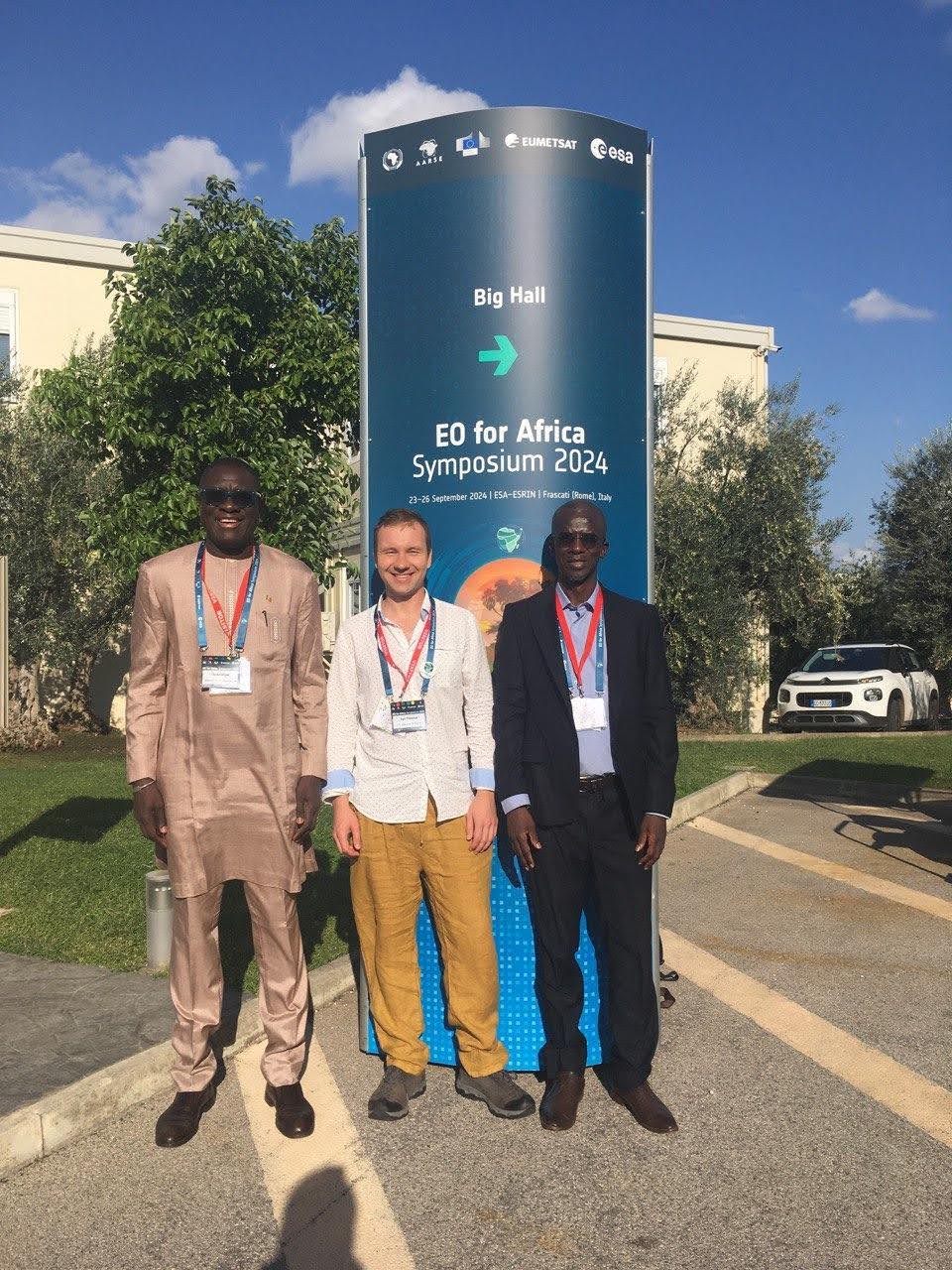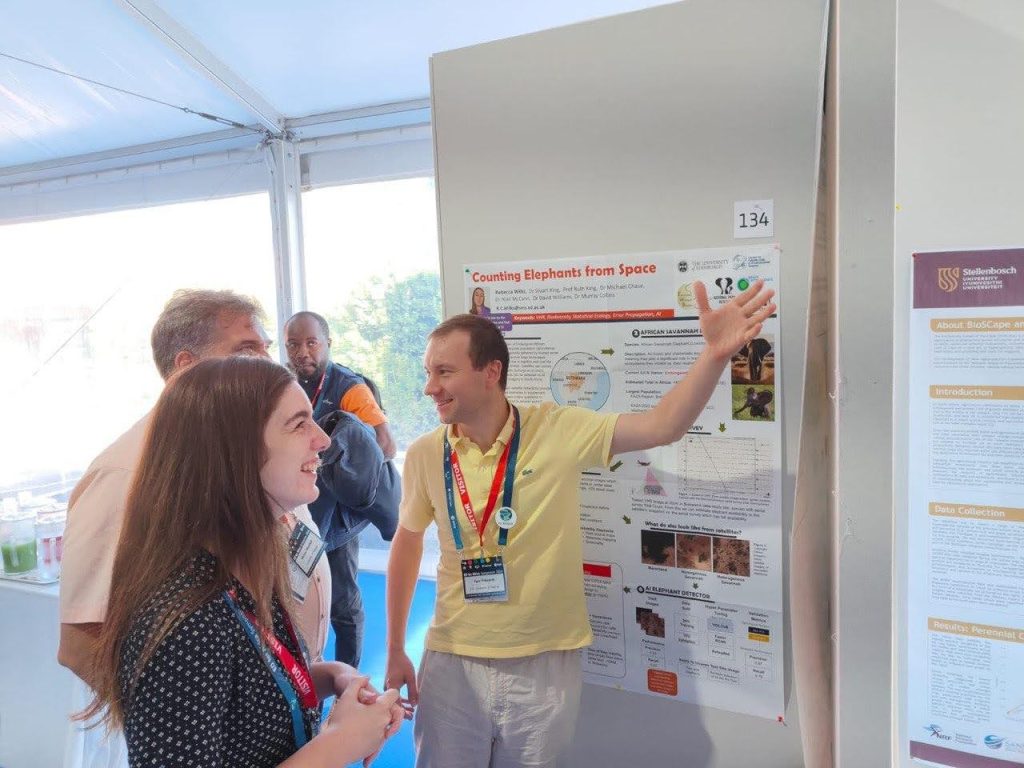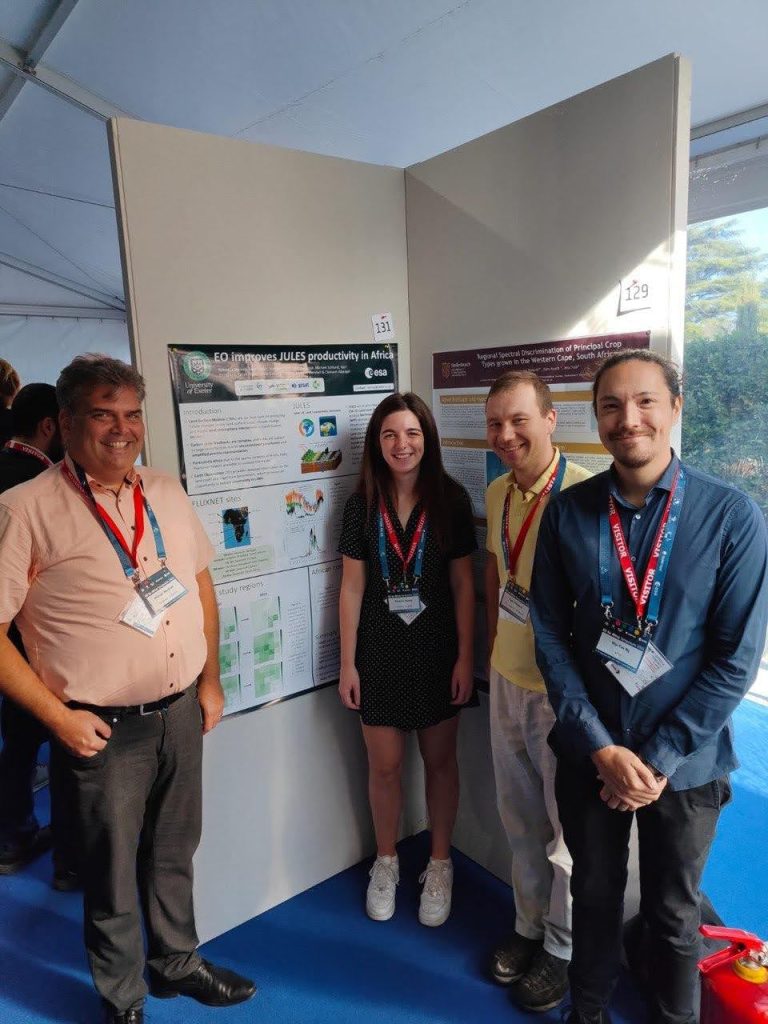Linda Gotsmy is a Master’s student at the BOKU University in Vienna, making significant contributions to the field of social ecology within ESA’s LUISA project. With a background in environmental management, Linda is leveraging her interdisciplinary skills to explore the complex interactions between ecological and societal systems. “Social ecology offers essential methodological tools for examining the interactions between human societies and natural systems – which is a central element to sustainability science” explains Linda.
Her interest in social ecology led her to contact Dr. Karl-Heinz Erb, head of the Institute of Social Ecology at BOKU University and BOKU’s lead in the LUISA project. “I was given the opportunity to work within the project, and experience firsthand how an international research project develops, learn project management skills, and observe how consortia and international partners work together, which is a really special characteristic of LUISA.” she adds.
HANPP key contribution to LUISA
BOKU is the main university developing the Human Appropriation of Net Primary Productivity framework (HANPP), which is central to LUISA.
| What is HANPP? HANPP evaluates the share of Net Primary Productivity (NPP) that is appropriated by human activities (such as farming, logging, or urban development) on a detailed, pixel-by-pixel scale. This metric helps researchers comprehend the interplay between the productivity and carbon dynamics of natural and managed ecosystems and the demands placed on land resources by human use. |
Linda contributes to the project by collecting agricultural data on the case study level to validate the remote sensing tool, aiming to improve the understanding of biomass use and land-use changes in disaster-prone regions.
In the course of the project, Linda had the possibility to further explore local land use dynamics during a field visit in Nhamatanda, Mozambique, one of the case studies in the LUISA project. “We noticed there was a lack of data to properly quantify HANPP on the district level. That’s why I travelled to Nhamatanda to connect with partners and acquire additional data,” Linda clarifies.
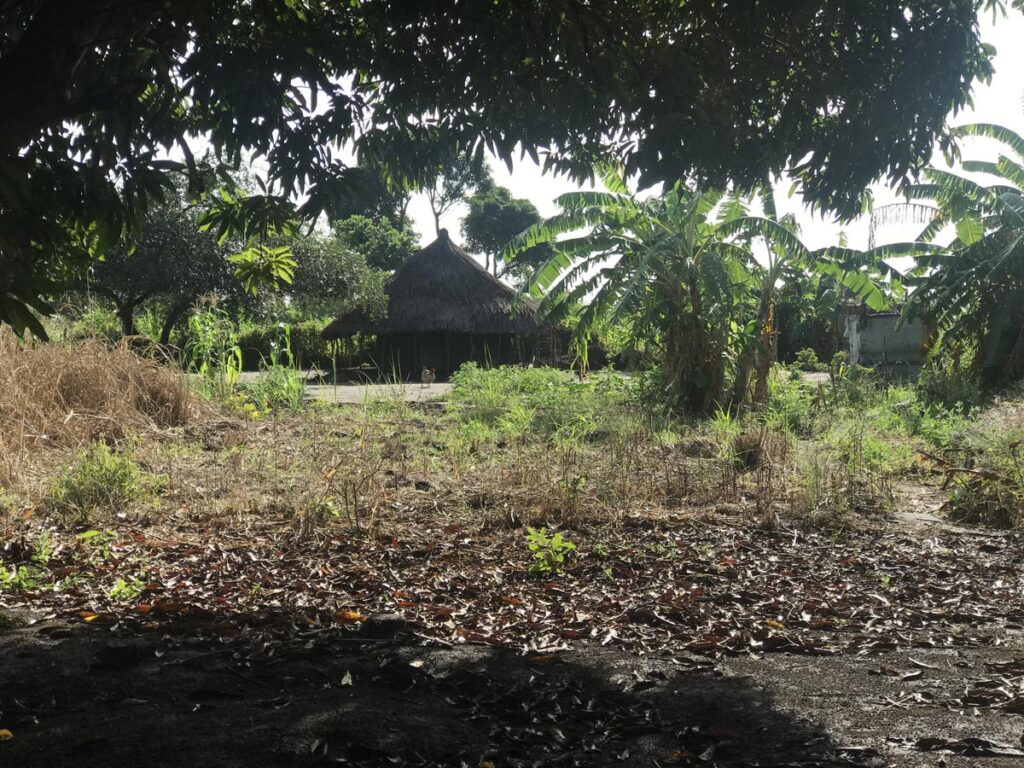
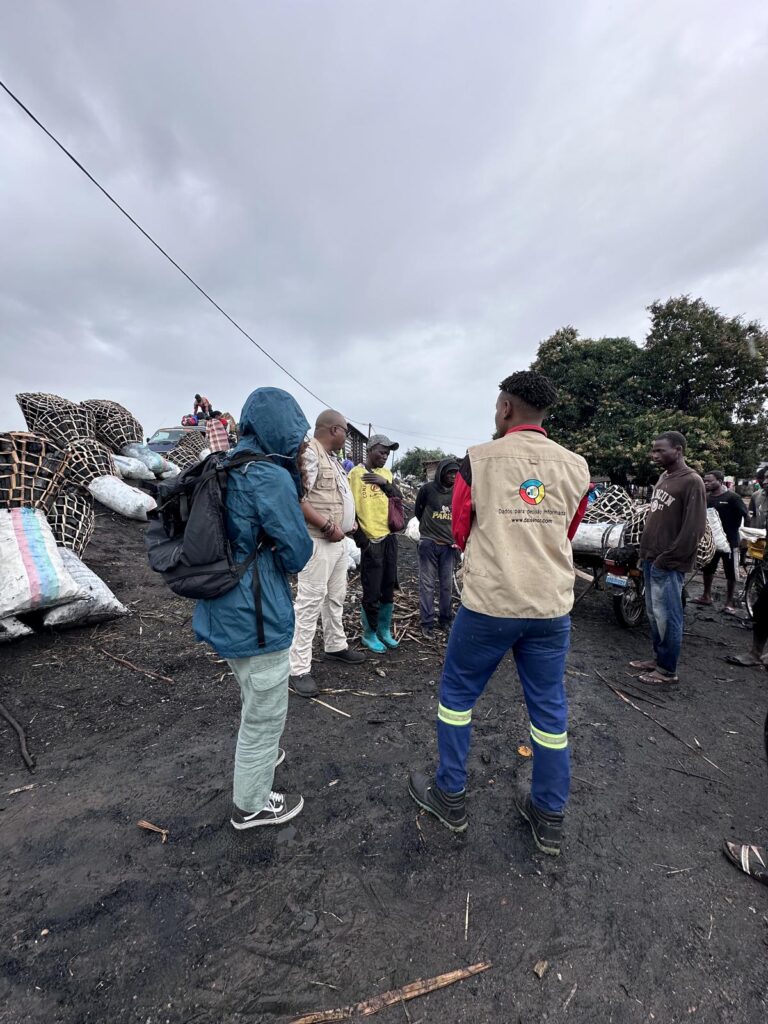
Fieldwork in Mozambique
Linda spent a month in Nhamatanda District, Mozambique, gathering data for her master thesis. During fieldwork, she interviewed experts, visited statistical offices and interacted with stakeholders, ranging from smallholder farmers to policy-makers.
According to Linda, “These stakeholders have to adapt to life with the new challenges that climate change, and in particular extreme weather events, bring. It was very insightful to see how climate change impacts agricultural practices and biomass use”.
The data-collection process included experimental methods, such as weighing and measuring typical fuel wood and charcoal sold in local markets. Linda visited four different villages within the district, conducting surveys to estimate the quantities of biomass used by the communities. This data collection was crucial for validating the remote sensing models and understanding the local land-use dynamics.
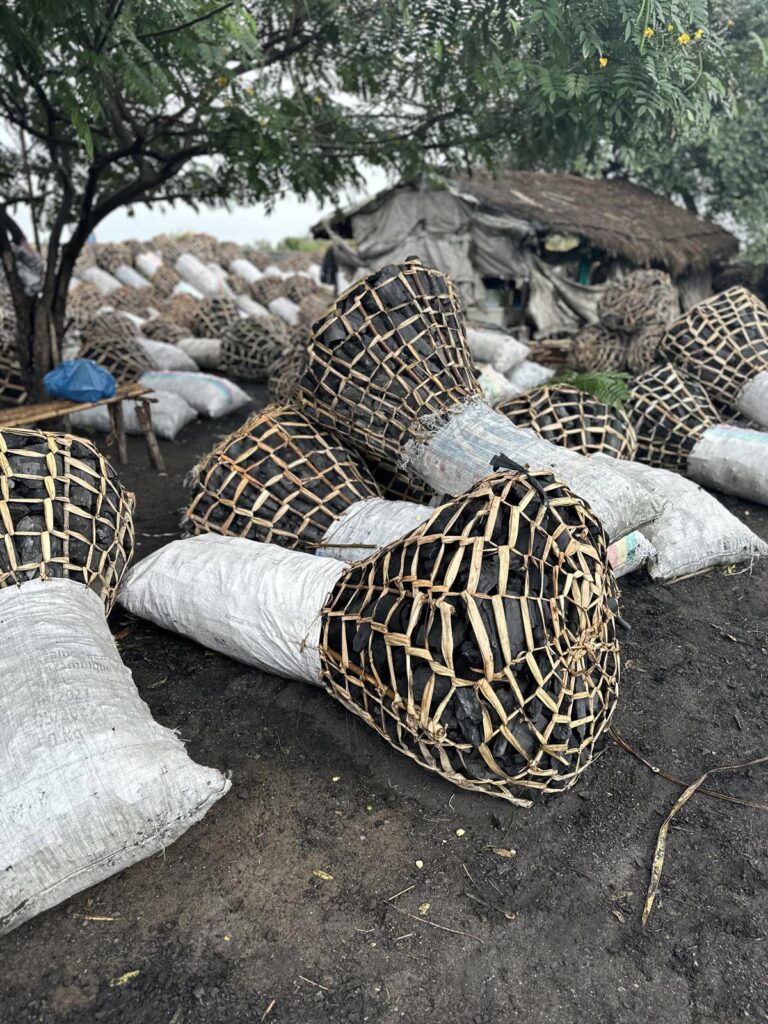
“BOKU’s collaboration with Data4Moz was instrumental in overcoming language barriers and ensuring accurate data collection,” Linda adds. As local partners, they facilitated communication with community members and government officials, enabling Linda to gather comprehensive and reliable data.
One of the highlights of this fieldwork experience was visiting a remote community in the Nhamatanda District, which required traveling by boat and motorcycle. “It was on a very remote side of the district. We had to drive there with a floating boat, and then hop onto motorcycles,” she recalls.
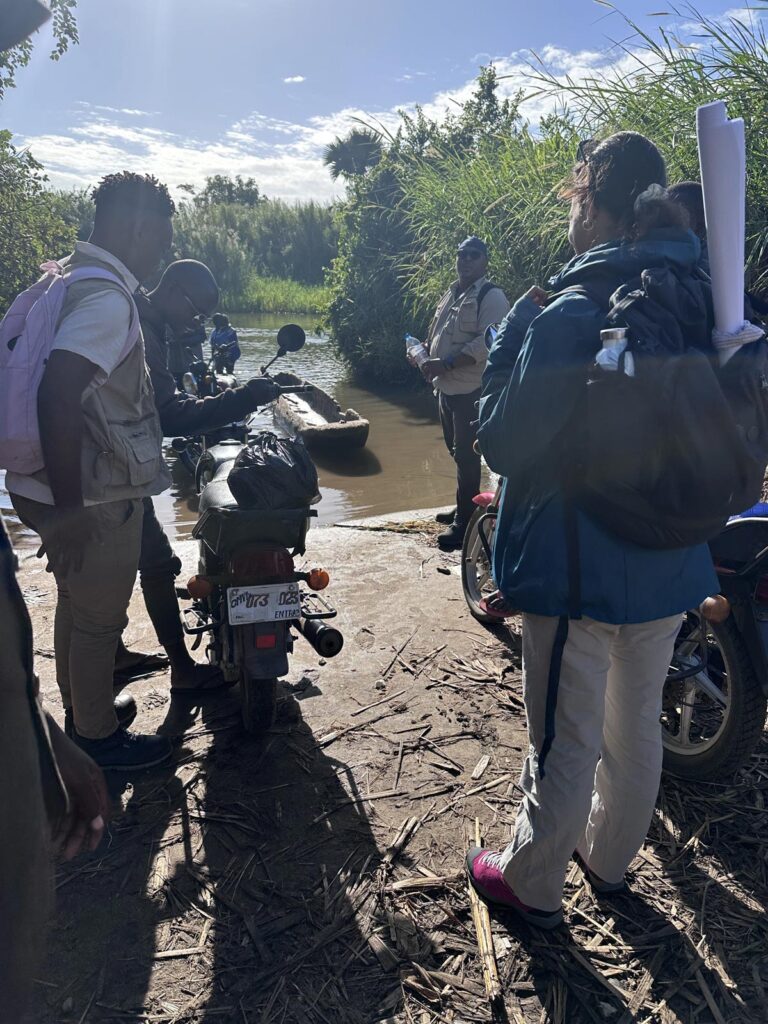
A local perspective
Linda’s analysis of the data collected in Mozambique revealed significant insights into the impacts of extreme weather events on agriculture. “I think the most important result is how the extreme weather events are affecting agricultural production by subsistence farmers” she explains. Linda also observed the most significant drivers of land-use change and biomass harvest in the region.
Her findings highlighted the contribution of charcoal production to tree cover losses in the district. Further, she could identify a shift towards more “cash crops”, such as sesame, which is an important oil crop exported from the region. This commercialization effort is putting additional pressure on the land-use system, affecting subsistence farmers who rely on their fields for survival.
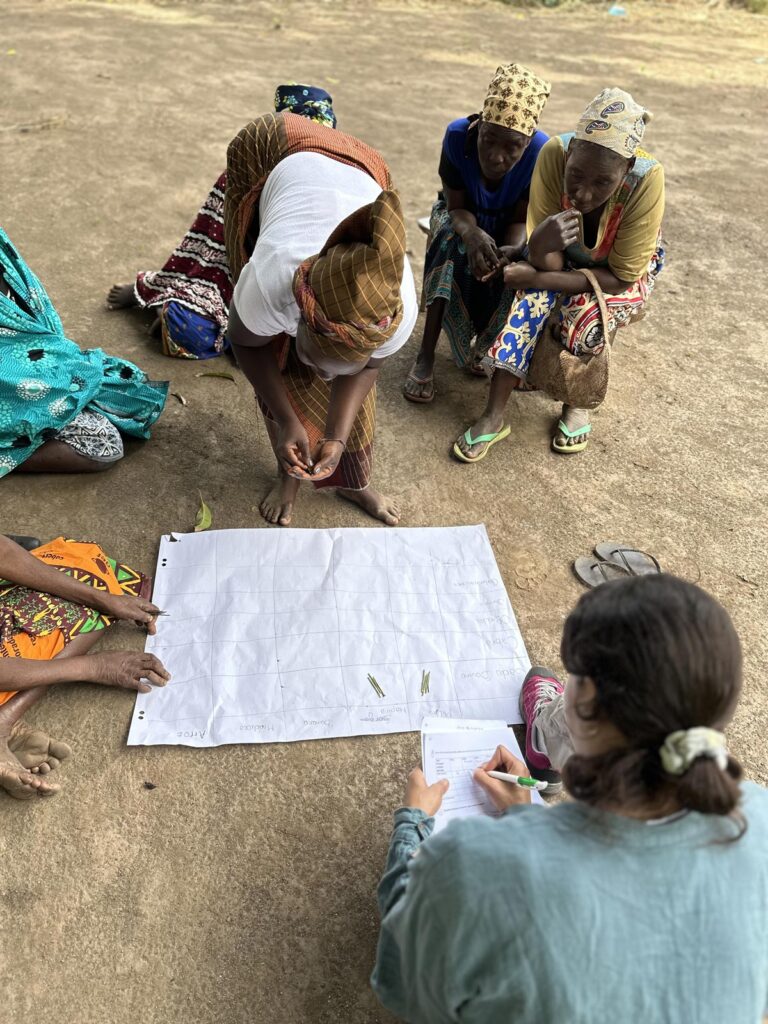
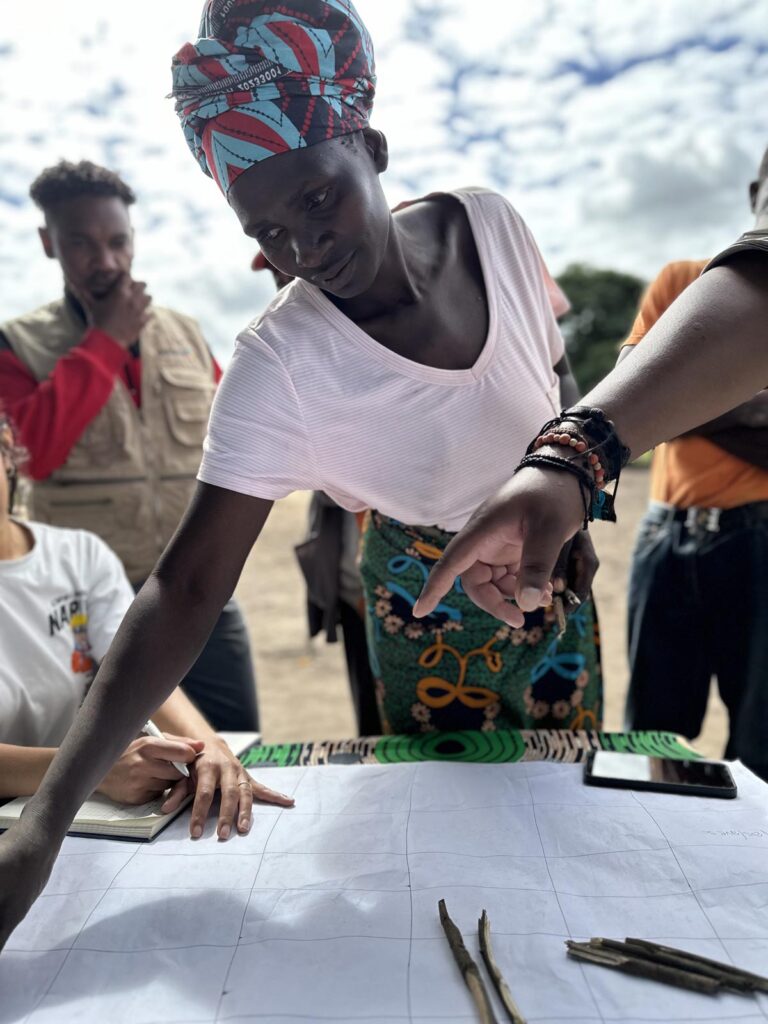
Next steps
Linda is now finishing her master thesis about her work in Nhamatanda, Mozambique. In the current stage of the LUISA project, the data collected is now compared with top-down assessments to ensure accuracy and reliability and to improve modelling capacities. “We have produced the 1st results from the top-down assessment. So, now is the time to look in detail at how they differ from the bottom-up calculations,” she explains.
The next steps involve further developing the HANPP framework and understanding its implications for sustainable land-use decisions. Linda’s contributions are helping to refine the methods and data inputs, ensuring that the framework accurately reflects the realities of land use in disaster-prone regions. According to Linda, “The best part of the LUISA project is the international collaboration with African partners. Thanks to this new network, we are able to work together on key issues for the locals”.
